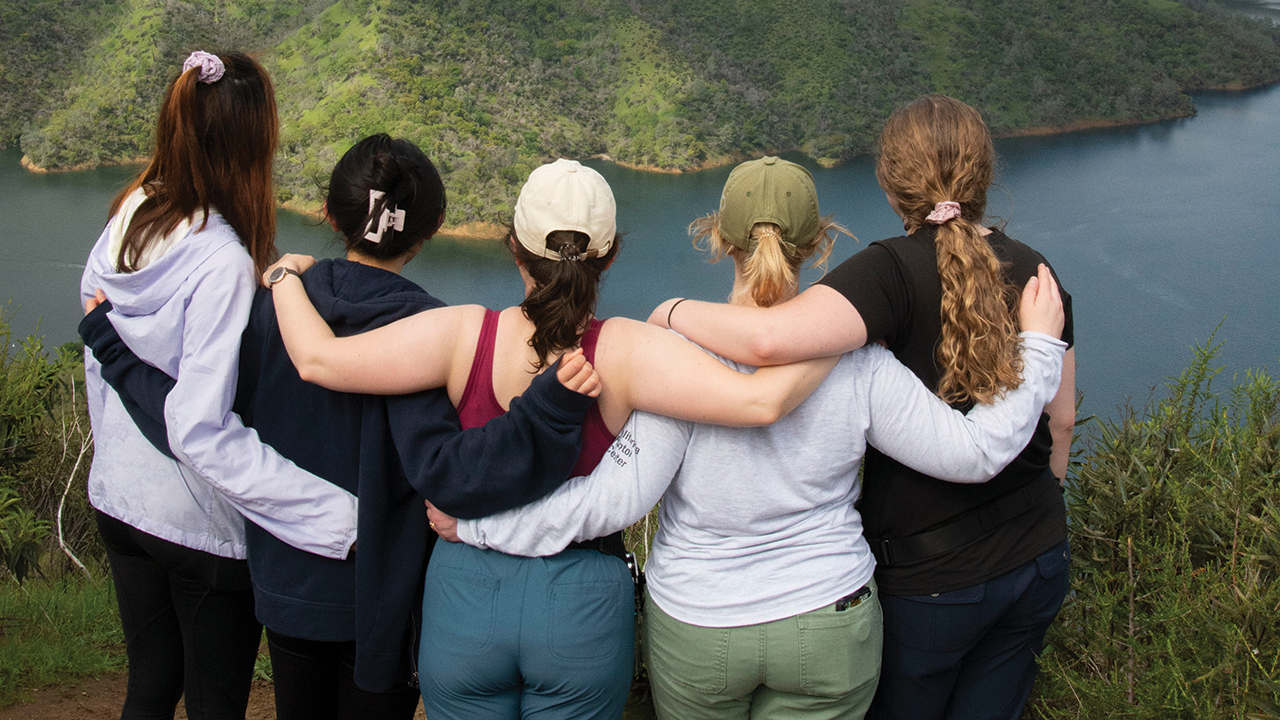
Taking Care
Prioritizing mental health in a challenging profession helps veterinary medicine professionals improve wellbeing and their ability to provide compassionate patient care.
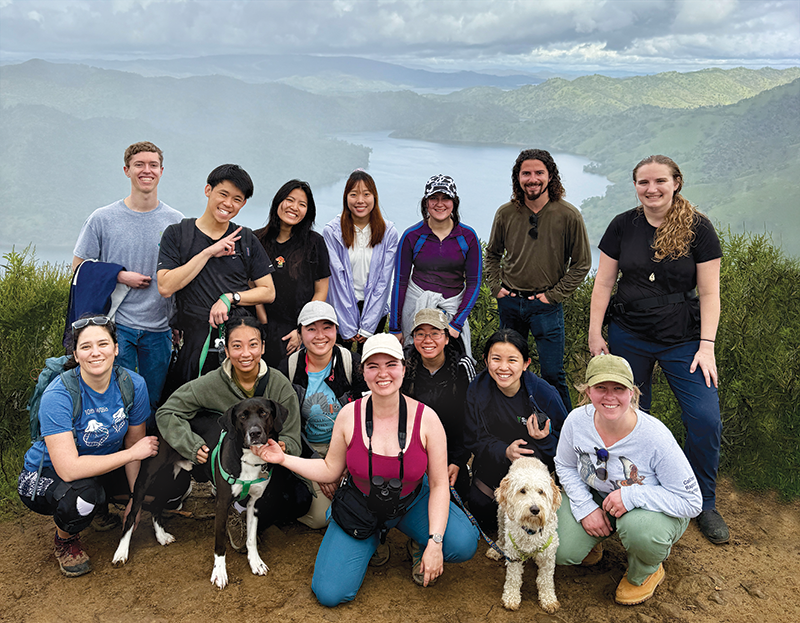

ndividuals are generally drawn to veterinary medicine because they have a passion for animals and a desire to help them. But until about a decade ago, there wasn’t much discussion about the dark underside of the career—the fact that female veterinarians are 3.5 times more likely to die by suicide relative to the general population, and male veterinarians are approximately twice as likely (J Am Vet Med Assoc, 2019).
In 2014, those statistics hit hard for Nicole McArthur, DVM ’01, when her fellow UC Davis alumna and world-renowned animal behaviorist Sophia Yin, DVM '93, died by suicide. When McArthur saw the lack of resources for other veterinary professionals struggling with mental health and wellness, she launched a Facebook group called Not One More Vet (NOMV) to discuss the challenges of veterinary medicine. In 2017, NOMV gained 501(c)3 status to pursue programming that would focus on transforming the status of mental wellness within the profession so that veterinary professionals can survive and thrive through education, resources, and support.
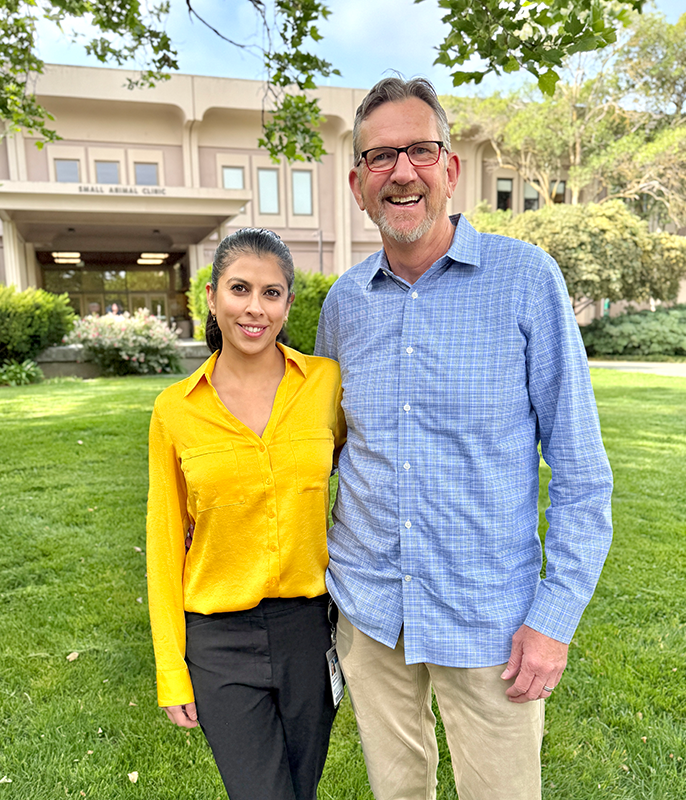
UC Davis has since moved firmly into the wellness awareness camp, said Erik Olstad, DVM ’13, who co-leads the Professional Skills curriculum with Jim Clark, DVM '88, and Anjali Daryani, DVM '15.
This curriculum, also known as the “Doctoring” program, provides instruction in mental health and wellbeing, client communication, career planning, and business during the first three years of veterinary school.
“When Anjali and I went to vet school, mental health wasn't really discussed,” Olstad said. “Not that it wasn’t a problem then, but the issues were not openly talked about. That’s the first step we bring to the students: an open discussion about the mental health struggles shared by many in this profession—whether they are students, veterinarians, residents or vet tech staff in clinics. We want to ensure that everyone understands that we're dealing with this and can help them build a toolkit of resources and community.”
That toolkit may look quite different from one person to the next because we all have different ways of dealing with mental health stressors. Olstad emphasized that stress itself isn’t necessarily the problem—it can drive us to achieve and do hard things. It’s how people handle it that makes a difference.
The first step we bring to the students [is] an open discussion about the mental health struggles shared by many in this profession.”
—Dr. Erik Olstad on the "Doctoring" program
“We try to build healthy habits through evidence-based training,” said Clark, who shares his own mental health challenges as a practicing veterinarian to reduce the stigma of mental health disease among medical professionals. “For example, we invite our students to participate in a 21-day wellness challenge where students commit to complete one simple daily activity that makes them happy, such as yoga, running, meditating, reading, or petting their dog. Evidence suggests that completing an activity daily for at least 21 days increases the likelihood of sustaining this habit.”
The co-leaders of the “Doctoring” course are clear that a few lectures per semester aren’t adequate preparation for dealing with the rigors of the profession, which may include compassion fatigue (the emotional and physical exhaustion that is often described as the negative cost of caring), rigorous and expensive education requirements, physical demands, and a high workload.
We try to point students in the direction of mental health and wellness resources and also how to recognize if their colleagues are in trouble,” Olstad said. “We teach our students about the QPR (Question, Persuade, Refer) suicide prevention recommendations that help identify the warning signs of suicide and what steps to take if you’re worried about it.”
We try to build healthy habits through evidence-based training.”
—Dr. Jim Clark
For Daryani, who came from India, mental health was a somewhat culturally taboo topic. When she was a student and heard Clark discuss his own journey with mental health, a door opened for her.
“Clark’s vulnerability with his students gave us all permission to step into a place where it was okay to be open about the challenges we face, which was a remarkable thing,” she said.
In addition to addressing mental health and wellness in the curriculum, the school has hired a skilled and compassionate counseling team to support DVM students and residents. The school also provides free tutorial assistance to reduce academic stress.
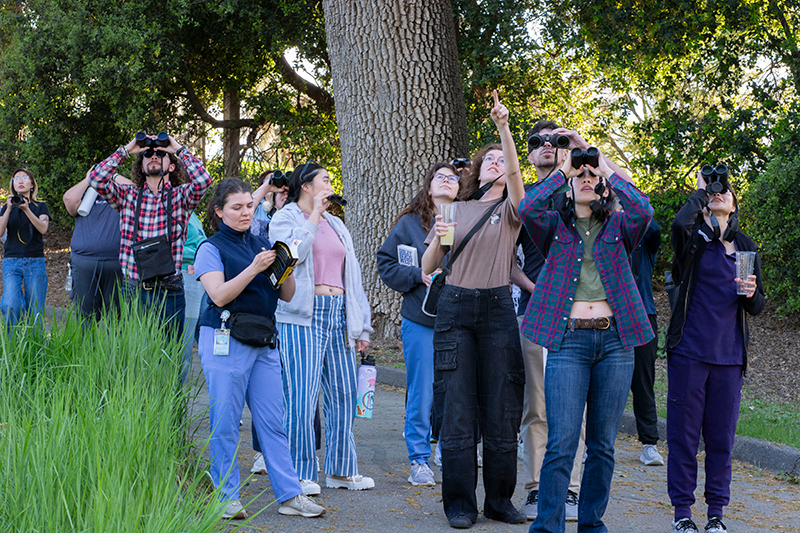
Students have also launched a grassroots effort to support themselves and fellow classmates by establishing a Health and Wellness Club.
This student club organizes multiple events for the student body, including a Week of Health and Wellness each spring with speakers, activities and meaningful ways to connect.
The group also hosts social outings such as hikes, rock climbing, trips to the Davis farmer’s market, cooking classes and potlucks throughout the year.
Taking time to be out in nature is super important and part of my academic success.”
—Elsie Lin, Class of 2027
“Generally, it's healthy to identify with your profession,” said Clark, who is in his 15th year as faculty for his alma mater. “Veterinarians, however, tend to over-identify with their profession, often neglecting other important aspects of life that provide healthy balance.”
The “Doctoring” program openly discusses both the joys and challenges of working in the field and encourages students to develop practical strategies to care for themselves. In just their second week of school, incoming students must complete a personalized wellness plan.
“The stigma around discussing mental health is still there, but I think that as a profession, and certainly as a school, we've taken some very important and hopefully impactful steps to openly discuss and promote mental health and wellbeing,” Clark said. “The reality, however, is that we can’t do this for our students—they need to prioritize this and develop their own personalized strategy for navigating the challenges of this career.”
The goal is to help students become more resilient.
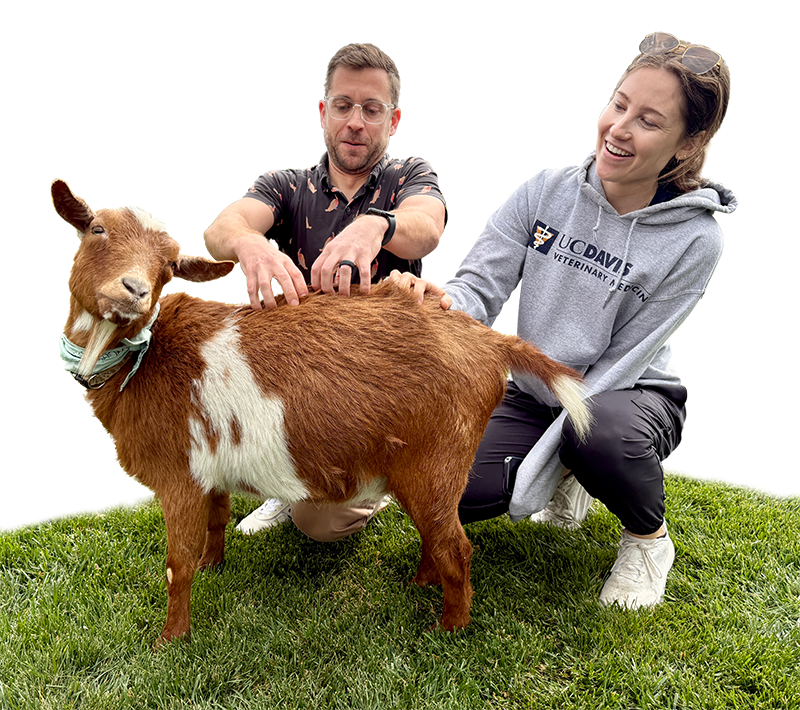
According to Clark, the goal is to help students become more resilient. This doesn’t mean just “sucking it up” during hard times. Instead, the goal is to mindfully employ practical strategies to promote a sense of wellbeing.
Strategies to promote mental health and wellbeing are also being adopted in a growing number of private veterinary practices. At the veterinary hospital owned by Daryani, her husband Dustin Noack, DVM ’14, and their partners, team members complete a quarterly compassion fatigue/burnout assessment and meet weekly to share how they are doing. They start every meeting by discussing cases heavy on their hearts or that keep them up at night.
“We discuss how can we better navigate challenges and support each other, taking what we learned in veterinary school at UC Davis about mental health and wellbeing and applying that in our practice,” Daryani said. “It’s a ripple effect that hopefully students will take with them when they leave the confines of the university to positively impact all of the other medical team members in a practice.”
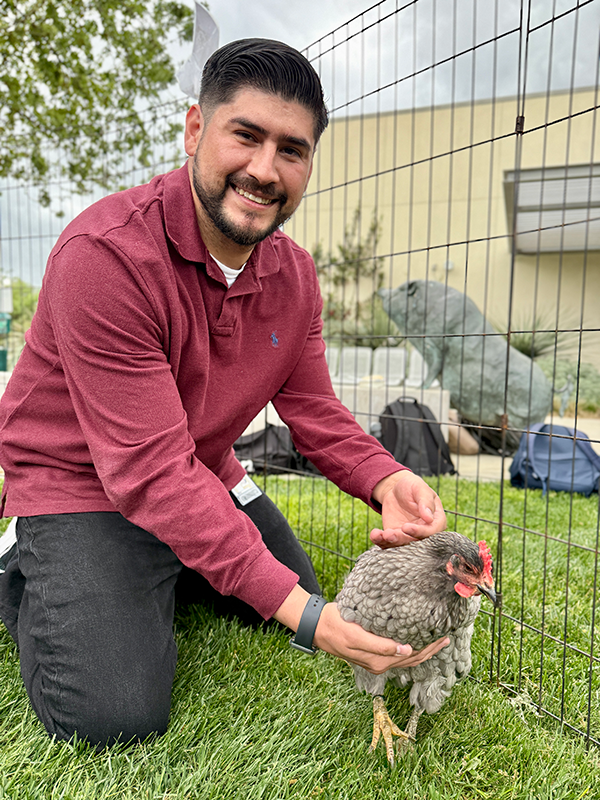
Staff meetings also include discussions about the hospital's Community Agreements, which outlines how they will treat each other. They’ve also instituted a signed Client Agreement that outlines the challenges faced by veterinary professionals to bring greater awareness to their clients.
“They must agree to treat us with kindness and respect, and we in turn will treat them the same,” Daryani said.
While some aspects of veterinary work may contribute to burnout and compassion fatigue, Clark emphasized the importance of protecting and preserving the joy and love for the career that draws people to it.
His advice to students and veterinary professionals:
“If you find yourself in a rut, remember that mental health disease is a real disease, not a personal shortcoming.
The key is getting help when you need it, and even better yet, being proactive.
We are subject to compassion fatigue in this profession, but we also have a wonderful opportunity to experience compassion satisfaction.”
Wellbeing Resources For Veterinary Professionals
Once students graduate from UC Davis, the counseling and support services they have access to on campus may not be as readily available. Dr. Daryani encourages them and anyone else in the profession to check their health insurance for mental health coverage and to stay informed of resources. “If you’re struggling, it’s okay to share your feelings. Knowing when to reach out—for yourself or someone else—may be the most important part of a wellbeing plan,” she said.
The American Veterinary Medical Association and Not One More Vet organization provide a variety of wellbeing resources and 24-hour hotlines.
988 SUICIDE &CRISIS LIFELINE
The 988 Lifeline is a national network of local crisis centers that provides free and confidential emotional support to people in suicidal crisis or emotional distress 24/7.
Call or text 988 to connect with the National Suicide Prevention Lifeline’s Crisis Chat team.
